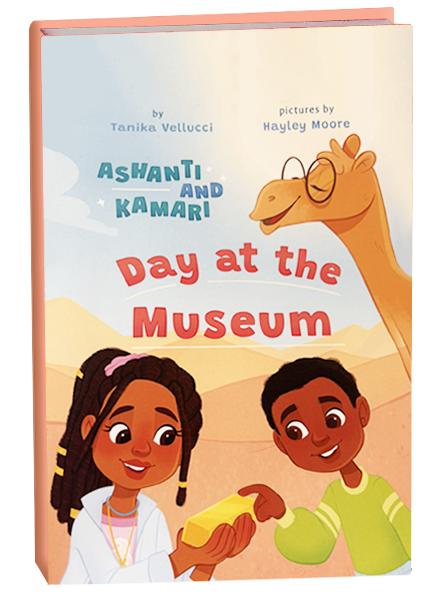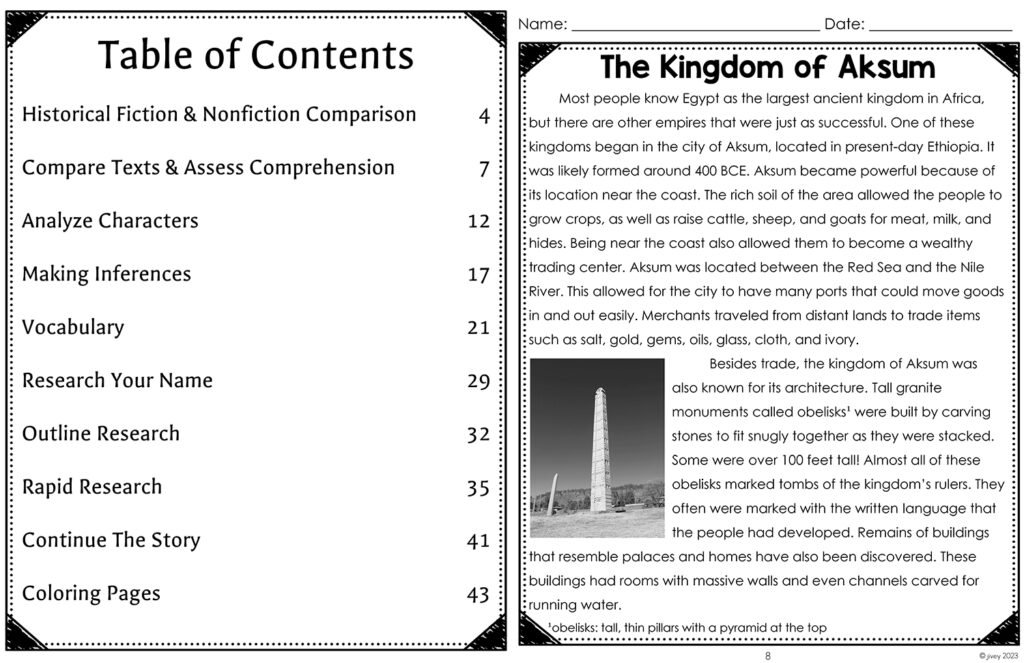Teacher Resource
Book 1: Ashanti's Journey to the Kingdom of Axum
Overview
In Book 1, young Ashanti is swept away in a vivid dream to the ancient Kingdom of Axum, a powerful empire once located in what is now Ethiopia. As she explores Axum, she uncovers the kingdom’s fascinating history, culture, and global influence — all through the lens of storytelling designed to engage young readers.
The Kingdom of Axum
The Kingdom of Axum (also spelled Aksum) was one of the most influential trading empires of ancient Africa, flourishing between 100 and 940 CE. Situated near the Red Sea, Axum became a hub of commerce, facilitating trade between Europe, Africa, and India.
Why It Matters in World History
Axum is a key topic in AP World History, particularly in Unit 2: The Global Tapestry, which explores early civilizations, trade networks, and cultural exchanges. Axum’s economy was heavily reliant on trade, and it played a vital role in the spread of goods, religions (like early Christianity), and ideas across continents.
What Students Will Learn
Through Ashanti’s imaginative visit to Axum, students will:
Discover the strategic location and trade routes of Axum
Learn about Axum’s cultural and religious legacy
Understand its role in global interconnectedness during the early centuries CE
Prepare for key topics that appear in high school and AP-level history exams

Book 2: Ashanti and Kamari Explore Mali and Meet Mansa Musa
Overview
In Book 2, Ashanti is joined by her curious brother Kamari as they venture to the Mali Empire, a West African kingdom renowned for its immense wealth and cultural achievements. Their journey takes them to Timbuktu, the intellectual heart of the empire, and they meet none other than King Mansa Musa, one of the richest and most influential leaders in history.
The Mali Empire & Its Legacy
Founded by Sundiata Keita, known as “The Lion King,” the Mali Empire rose to prominence in the 13th century and remained powerful through the 17th century. It was built on the riches of gold and salt and became a cultural and educational center of the Islamic world.
Mansa Musa: King of Kings
Mansa Musa is famous for his legendary pilgrimage to Mecca in the 1320s, where he displayed the vast wealth of Mali, helping to put West Africa on the map globally. His reign led to the flourishing of cities like Timbuktu, known for their libraries, universities, and scholars.
Why It Matters in World History
The Mali Empire is a major topic in AP World History, especially when discussing economic systems, cultural diffusion, and religious expansion. Mansa Musa’s story highlights the powerful impact African kingdoms had on the medieval world.
What Students Will Learn
Through Ashanti and Kamari’s travels, students will:
Understand the rise and influence of the Mali Empire
Learn about the importance of gold and salt trade in West Africa
Explore the legacy of Timbuktu as a center of learning
Gain historical insight into how African kingdoms influenced the wider world

Why These Books Matter
The “Ashanti and Kamari” series is more than just an adventure. These books offer young readers a captivating way to explore real-world history and global cultures. By blending storytelling with academic relevance, students:
Build a stronger foundation for high school subjects like World History and Geography
Connect historical concepts to real places and people
Prepare for AP World History and college-level learning
Develop a broader understanding of the world around them
“See the past. Know the world. Dream the future.” — with Ashanti and Kamari.

